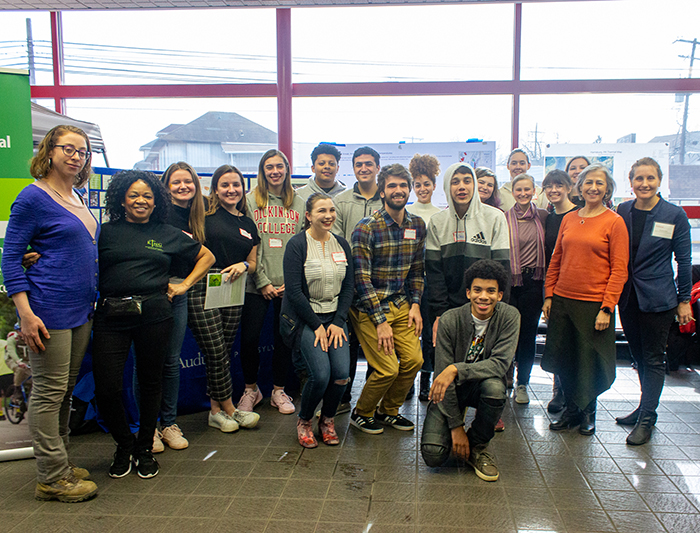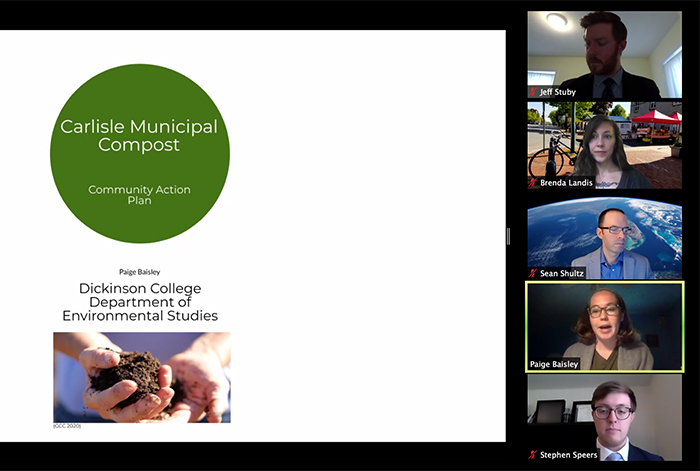Dickinson College Students Share Research on Environmental Issues in Their Communities

Students in the spring 2020 Environmental Innovations and Activism capstone course present their work online.
Online symposium includes presentation to Carlisle Borough Council
by MaryAlice Bitts-Jackson
Students in two classes recently presented original community-based research that included creative, zero-waste approaches and a proposal to the Carlisle Borough Council.
The 24 students in Assistant Professor of Environmental Studies Heather Bedi’s Environmental Justice class used the Environmental Protection Agency’s interactive map to identify environmental risks close to their hometowns and research the ways that these factors affect the health of community members. Then they developed creative presentations about their work that responded to Bedi’s call for an interdisciplinary, zero-waste online symposium so they could share their findings with interested parties.
Repurposing items in her Collegeville, Pennsylvania, home while in quarantine, Grace Gontarek ’22 (political science, environmental studies) used old medicine bottles to create a visual representation of hazardous environmental health risks at a nearby nuclear plant. To represent the devastating impacts of lead exposure on children in her region, Natalie Cist ’23 (undeclared) of Winchester, Massachusetts, created a dance piece about child-development stages and performed it in a playground where high lead levels have been recorded.

Bedi's Environmental Justice class, before Dickinson moved classes online in response to the global pandemic.
Students in Bedi’s Innovations and Activism capstone course took an in-depth look at issues relating to the Carlisle and campus communities. Haley Salmon ’21 (environmental studies) studied and reported on Carlisle’s Farmers on the Square market, and fellow environmental-studies major Allison Miller ’20 researched environmental-behavior case studies conducted by RARE—work she connected with as a Center for Sustainability Education intern and Baird Sustainability Fellow. Paige Baisley ’20 (environmental science) also drew from firsthand experience as she analyzed Carlisle’s composting program in comparison to those in similar towns.
Based on her research, and on her experiences as a student-worker at the College Farm, Baisley’s report included suggested improvements to local compost facilities and collection methods. At Bedi’s suggestion, and with help from Multimedia Specialist Brenda Landis, a member of the Carlisle Borough Council, Baisley shared her work with the Carlisle Borough Council during a recent council Zoom meeting. Baisley was thrilled by the warm response she received—and by the fact that the council is now researching the cost of improvements.

Paige Baisley '20 (second from bottom) shares her research with members of the Carlisle Borough Council.
As she begins her post-environmental-science-major career as field research assistant at the Connecticut Agricultural Experiment Station, Department of Forestry and Horticulture, Baisley is grateful for the chance to apply her research in service of a community she cares deeply about. “I was initially overwhelmed by the idea of presenting to the council,” she says. “But as the project developed, I realized that this was the best way to make my work impactful and accessible to other people who may be interested in building on it for the future.”
TAKE THE NEXT STEPS
Published June 3, 2020